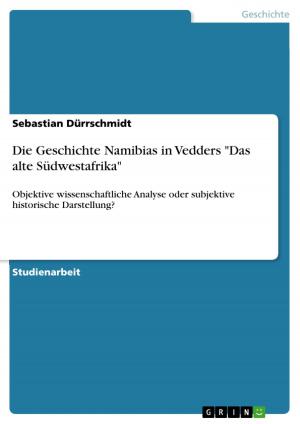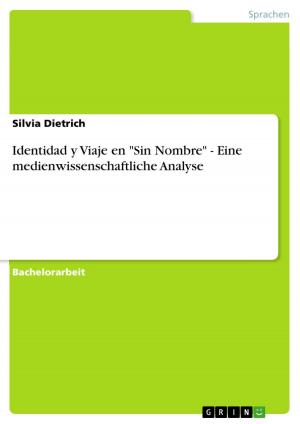Attitudes of German Non-Native Speakers of English Towards British Varieties
A Case Study on the Example of the TV-Series 'Downton Abbey'
Nonfiction, Reference & Language, Language Arts, Linguistics| Author: | Marlene Weber | ISBN: | 9783668052642 |
| Publisher: | GRIN Verlag | Publication: | September 23, 2015 |
| Imprint: | GRIN Verlag | Language: | English |
| Author: | Marlene Weber |
| ISBN: | 9783668052642 |
| Publisher: | GRIN Verlag |
| Publication: | September 23, 2015 |
| Imprint: | GRIN Verlag |
| Language: | English |
Seminar paper from the year 2015 in the subject Speech Science / Linguistics, grade: 2,7, LMU Munich (Anglistik und Amerikanistik), course: Accents of English, language: English, abstract: The reason to conduct this study lies within the question of how German (and therefore non-native) speakers of English evaluate different ways to speak the English language. How do they judge its speakers to be as a person and is this dependent on the variety he or she speaks? It will be interesting to see whether what way of speech they personally prefer to speak or what kind of education they received influences their judgement of the speech samples presented to them. A lot of research of attitudes towards varieties for the educational sector has been done, but the aim of this paper is rather to show whether this attitude is also influenced by visual stimuli and how non-natives in Germany evaluate the different ways of speaking English, to have an impression of how these attitudes in everyday encounters may look like. Consequently, there are several hypotheses which are to be tested by two questionnaires and with the help of the TV series 'Downtown Abbey'.
Marlene Weber studied English literature and linguistics as well as history in her BA-programme at Ludwig-Maximilians-University in Munich. She focuses mainly on revolutions, Victorian England, the Jacobite Rising and Scotland. For her graduation thesis, she wrote about the Scottish author Sir Walter Scott and the American author Diana Gabaldon ("Outlander"), focusing on how Scottish culture is established through textual means. She is currently involved in a one-year MA-programme at LMU to become a literary translator for English into German. Her MA-thesis focuses on the translation of Unspeakable by Dilys Rose and the Scots in it by means of an artificial dialect into German.
Seminar paper from the year 2015 in the subject Speech Science / Linguistics, grade: 2,7, LMU Munich (Anglistik und Amerikanistik), course: Accents of English, language: English, abstract: The reason to conduct this study lies within the question of how German (and therefore non-native) speakers of English evaluate different ways to speak the English language. How do they judge its speakers to be as a person and is this dependent on the variety he or she speaks? It will be interesting to see whether what way of speech they personally prefer to speak or what kind of education they received influences their judgement of the speech samples presented to them. A lot of research of attitudes towards varieties for the educational sector has been done, but the aim of this paper is rather to show whether this attitude is also influenced by visual stimuli and how non-natives in Germany evaluate the different ways of speaking English, to have an impression of how these attitudes in everyday encounters may look like. Consequently, there are several hypotheses which are to be tested by two questionnaires and with the help of the TV series 'Downtown Abbey'.
Marlene Weber studied English literature and linguistics as well as history in her BA-programme at Ludwig-Maximilians-University in Munich. She focuses mainly on revolutions, Victorian England, the Jacobite Rising and Scotland. For her graduation thesis, she wrote about the Scottish author Sir Walter Scott and the American author Diana Gabaldon ("Outlander"), focusing on how Scottish culture is established through textual means. She is currently involved in a one-year MA-programme at LMU to become a literary translator for English into German. Her MA-thesis focuses on the translation of Unspeakable by Dilys Rose and the Scots in it by means of an artificial dialect into German.















